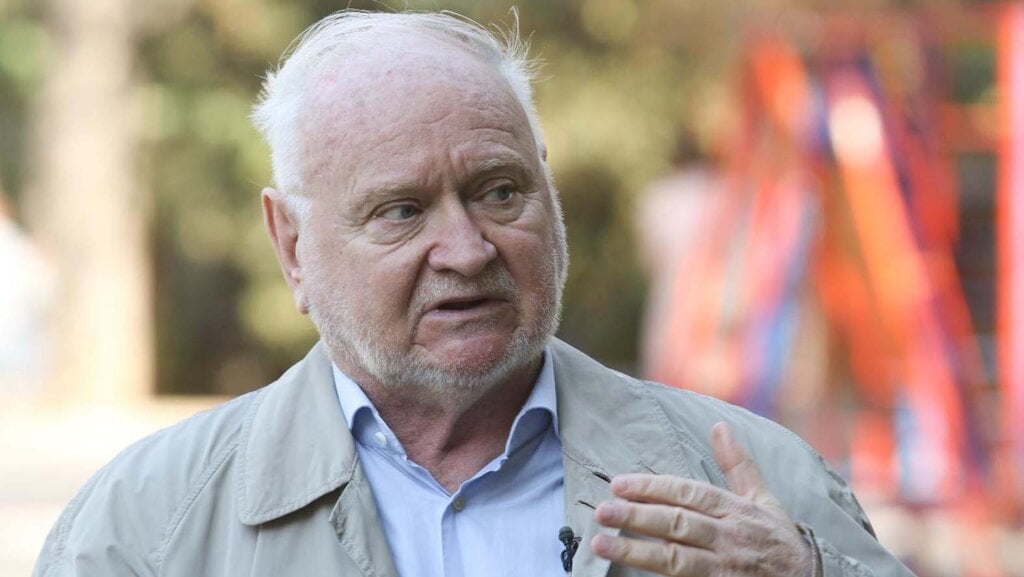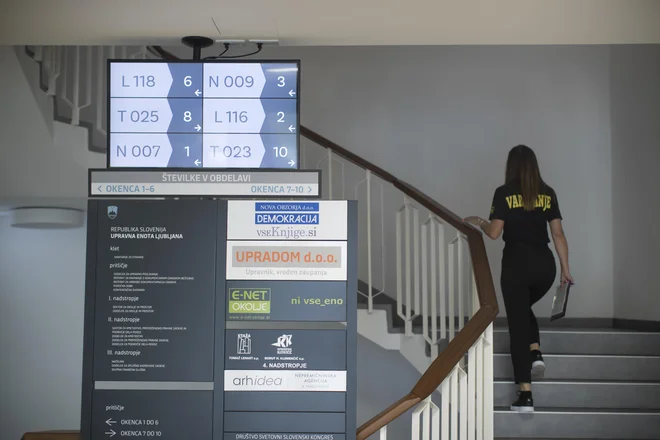Column | Intellectual laziness – NRC
:format(jpeg):fill(f8f8f8,true)/s3/static.nrc.nl/taxonomy/061fd2f-Rusman%252C%2520Floor%25202023%2520%255BDoomernik%25202320%255D%25201280%2520WEB.png)
Today I want to talk about Ronald Plasterk, but it could also have been someone else. For me it is not about Plasterk himself, but about what he symbolizes: intellectual laziness.
Ronald Plasterk was originally a microbiologist, but if Telegraph-Columnist he writes about everything, from trans athletes to gaza. There is nothing wrong with this in principle; As a columnist you are an omnivore. You graze on it and try to say something meaningful about things that others have much more understanding. One thing is important for this: knowing the limits of your capacities. An omnivore is not all -weter.
This is where Ronald Plasterk goes wrong. Take his column from last weekabout the war in Ukraine. Plasterk examines what Europe should do: « Giving a lot of money for as many weapons as possible, to extend bloodshed, or a peace agreement in the short term ». With which option Plasterk’s preference lies, the question is shown.
Now the question « When should you manage in a war on negotiations? » An important and interesting. In the case of Ukraine, not everyone will give the same answer. It is also true that the question received little attention in the last three years. Often the answer was simply ‘Ukraine has to win the war’, not to explain what that meant.
But that Plasterk is not really interested in the question, according to everything. For example, he ridiculizes the option ‘sending more weapons to Ukraine’ by writing: « Fighting the war until Russia is defeated and Putin is behind bars is completely unrealistic. » He also finds it realistic that Ukraine wins the war: « What should you imagine: Zenski who moves up to Moscow and plant the Ukrainian flag on the Kremlin? » I’m pretty sure that nobody, literally zero people, is introducing this in a Ukrainian victory. Anyone who argues for fighting, especially hopes that terrain gain will give Ukraine a better negotiating position.
The fact that Plasterk distorts the debate means that he has no idea of the arguments of his ‘opponents’, or that he consciously portrays them as idiots to be able to oppose them. I never know what worse, but that doesn’t matter.
Who wants to approach the truth must doubt themselves
There is more nonsense in the column, such as Plasterk’s statement that ‘left’ wants more weapons, and ‘right’ a peace agreement. In reality, all middle parties, from GroenLinks-PvdA to the VVD, want to continue to send weapons to Ukraine, while the flanks (SP, FVD, PVV) do not want that. It is also not that the middle parties do not want a peace agreement – they only disagree with the conditions of Trump, called a « peace pigeon » by Plasterk.
Despite these shortcomings, Plasterk seems to think that with his column he makes an important contribution to the debate. It is a typical example of the so-called Dunning-Kruger effect, in which people who are less good at overest their skills. I recently read about that effect Interesting Substack post From a philosopher. Some tasks are difficult to learn, but also ‘meta-easy’, it writes: It is easy to see if you are performing them well. If you think you will be good in making Sudoku’s, but then fail, you have to adjust your self -image. This is not the case with many complex topics; They are ‘meta-difficult’. You can proclaim a lot of nonsense about the war in Ukraine without the reality confronting you with your ignorance. In addition, it does not help that there is less and less shared reality. If you live in a microcosm in which everyone says that ‘left’ is warlike, you will not be corrected for this actually incorrect analysis. A shattered media landscape does not encourage critical thinking.
All this went through me when I have the recently published book What is true? Las, in which philosophers Rik Peels and Jeroen de Ridder formulate seven rules « to think clearly in confusing times. » Anyone who wants to approach the truth as close as possible must, among other things, doubt themselves, go beyond his bubble and have a realistic picture of his own abilities and position.
The only question is: why would you make all that effort? It is obvious for the collective if everyone follows the seven lines of Peels and De Ridder: it will lead to a reasonable audience debate with fewer straw men, frames and propaganda. But it is different for the individual. It is both easier and finer not to think too much: you do not burden yourself with complicated puzzles, and you get the chance to hear from a group of like -minded people.
Those benefits also fall plasterk. This week he was even nominated for the Pim Fortuyn prize, a prize for opinion makers, administrators or politicians who « express their views without fear. » How wonderful it should not be to not doubt yourself and yet to count as a critical thinker. Then why would you try to really think?
Floor Rusman ([email protected]) is editor of NRC

:format(webp)/s3/static.nrc.nl/wp-content/uploads/2025/05/09202527/data131928681-d7a364.jpg)
:format(webp)/s3/static.nrc.nl/wp-content/uploads/2025/04/15100306/data130733534-5767f1.jpg)
/s3/static.nrc.nl/images/gn4/stripped/data131495621-6ae4ac.jpg)



